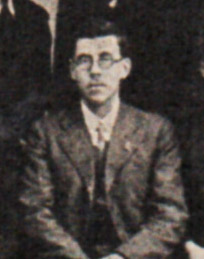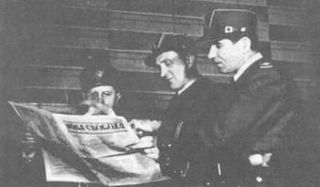 W
WAdolf Burger was a Jewish Slovak typographer, memoir writer, and Holocaust survivor involved in Operation Bernhard. The film The Counterfeiters, based largely on his memoirs, won the 2007 Academy Award for Best Foreign Language Film.
 W
WBohuslav Chňoupek was a Czechoslovak politician, journalist and writer. He was one of the most visible representatives of the Communist regime after the defeat of the Prague Spring.
 W
WDobroslav Chrobák was a Czechoslovak writer.
 W
WLouis Fürnberg was a Czechoslovakian-German writer, poet and journalist, composer and diplomat. He wrote the Lied der Partei, the song that served for years as the official anthem of the East German ruling Socialist Unity Party (SED).
 W
WVladimír Holan was a Czech poet famous for employing obscure language, dark topics and pessimistic views in his poems. He was nominated for the Nobel Prize in the late 1960s. He was a member of the Communist Party of Czechoslovakia.
 W
WJosef Hora was a Czech poet, literary critic and journalist.
 W
WFrantišek Hrubín was a Czech poet and writer. He was a lifetime member of the Communist Party of Czechoslovakia.
 W
WJan Jelínek was a Czech legionnaire and author of a book about legionnaires from the Boskovice region. He wrote about legionnaires in Russian, Italian, and French from 1931 to 1938.
 W
WRůžena Jesenská, was a decadent writer, a follower of Julius Zeyer. She was a member of the Czech Academy of Sciences, sister of Marie Jesenská and aunt of writer Milena Jesenská. Růžena Jesenská wrote novels, plays, short stories, children's books, and over 50 collections of poetry.
 W
WFranz Kafka was a German-speaking Bohemian novelist and short-story writer, widely regarded as one of the major figures of 20th-century literature. His work fuses elements of realism and the fantastic. It typically features isolated protagonists facing bizarre or surrealistic predicaments and incomprehensible socio-bureaucratic powers. It has been interpreted as exploring themes of alienation, existential anxiety, guilt, and absurdity. His best known works include "Die Verwandlung", Der Process, and Das Schloss. The term Kafkaesque has entered the English language to describe situations like those found in his writing.
 W
WEva Kantůrková is a Czech author and screenwriter. A communist in her early years, she joined the Czech dissident movement after the Soviet invasion of Czechoslovakia and was one of the signatories of Charter 77. In her novels, short stories, historical essays, and diaries, she has chronicled the repression of Czech dissidents and explored themes of political and personal disillusionment.
Zdeněk Mlynář was secretary of Czechoslovak communist party in the years 1968–1970 and an intellectual. Mlynář wrote the noteworthy political manifesto Towards a Democratic Political Organization of Society which was released on 5 May 1968, at the height of the Prague Spring. He also wrote, while in exile in Vienna, an autobiographical account of the Prague Spring and the Warsaw Pact invasion that put an end to it in August, 1968. It was published in an English translation called Nightfrost in Prague: The End of Humane Socialism.
 W
WVítězslav Nezval was one of the most prolific avant-garde Czech writers in the first half of the twentieth century and a co-founder of the Surrealist movement in Czechoslovakia.
 W
WJan Petránek was a Czech journalist, commentator and dissident during Czechoslovakia's communist era. He was a signatory of Charter 77.
 W
WIvan Rohach was a Ukrainian journalist, poet, writer, and political activist born in Velykyi Bereznyi, Ung county, Austria-Hungary.
 W
WAlice Rühle-Gerstel was a German-Jewish writer, feminist, and psychologist.
 W
WJosef Vágner was a Czech zoologist, tropical forester, author, and the director of the Dvůr Králové Zoo in Dvůr Králové nad Labem. His life motto was: "Humankind will never be able to repay animals what we owe them."